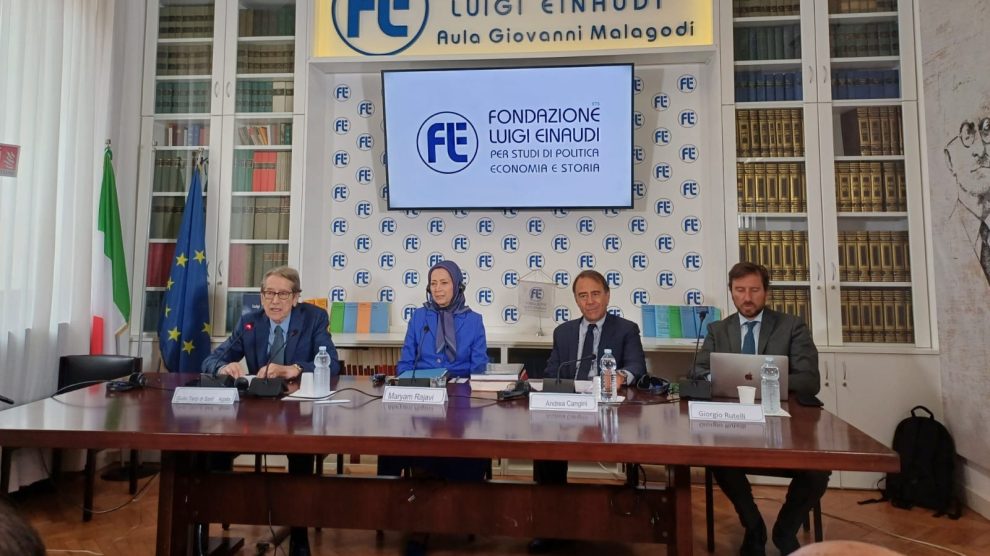Tehran summons Italian ambassador after dissident conference. Giuseppe Perrone, the Italian Ambassador in Tehran, was summoned to the Iranian Foreign Ministry on Friday. The authorities sought to voice their condemnation of an institutional event featuring Maryam Rajavi, leader of the National Council for Iranian Resistance, who met with members of the Italian Parliament.
- The following conference featured Senator Giulio Terzi di Sant’Agata, Chairman of the Senate’s European Affairs Committee as well as a party member and close ally of Prime Minister Giorgia Meloni, who is among the most ardent critics of the Iranian regime.
- It was also moderated by our sister website’s director, Giorgio Rutelli.
- To date, over half (307) of all Italian MPs signed her appeal for a free and democratic Iran.
Terrorist, you say? According to Irna, the Iranian Foreign Ministry’s Director for European Affairs sought to warn the Italian government – through Ambassador Perrone – that “hosting a terrorist criminal means encouraging and promoting terrorism.”
- “The Islamic Republic will not tolerate such moves in any form by anyone and expresses serious condemnation,” added the official, who asked the government in Rome to “avoid turning the country into a refuge for terrorists.”
That’s not how it works over here. Following the news of the Italian ambassador’s summons, Andrea Cangini – Secretary-General of the Luigi Einaudi Foundation, which organised the conference and Ms Rajavi’s meeting with MPs – hit back through our sister website. “In Italy, freedom of opinion is a constitutional right,” he wrote, noting that she had been invited to outline her political manifesto.
- That came in the form of a decalogue, he continued: “universal suffrage, pluralism, freedom of the press, gender equality, clear separation of Church and State, respect for human rights, recognition of private property, abolition of the death penalty…”
- “… The cornerstones of the liberal rule of law flaunted in the home of Italian liberals. That Tehran made such a case of this that it summoned the Italian ambassador is an emblematic circumstance. Revealing, I would say: it reveals the degree of fanaticism and illiberalism of the Iranian regime.”
Upholding liberalism. When he welcomed Ms Rajavi, the Foundation’s secretary stressed it is “secular by definition” and does not side “with any of the many organisations of the Iranian dissidence.” It is, however, “on the side of the Iranian people” and it believes “that the conflict between the regime’s opponents, real or supposed, is the best favour that can be done to the theocracy in Tehran.”
- “The conflict, in fact, is there. And it is a violent conflict. Many do not believe in the democratic conversion of Ms Rajavi’s mujahideen; many remember the fanaticism and violence in [Ayatollah] Khomeini’s time and afterwards. Any doubt is legitimate. The fact remains that when the Luigi Einaudi Foundation hosted representatives of other organisations, we had no reaction. Yesterday, Tehran’s reaction was exorbitant. As for the accusation of ‘terrorism,’ it is the way all autocracies and all invading states liquidate dissent.”




